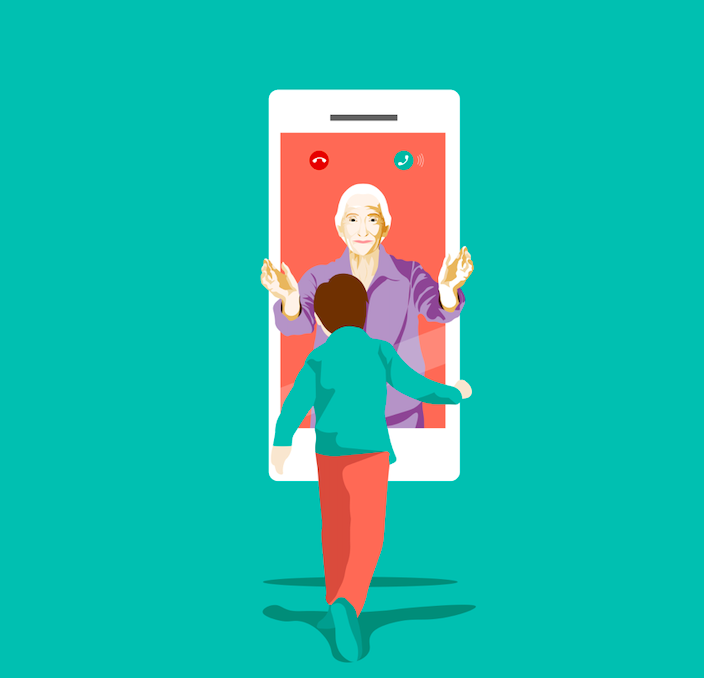Everything has changed with the onset of the pandemic, but our relationships have changed most of all. Many of us have spent months solely in contact with those in our household. Loneliness quickly became an unfortunate reality as small talk and peripheral conversations disappeared. Despite the difficulties of maintaining relationships, technology has created space for intentional friendships.
GOODBYE, SMALL TALK
The first thing to go in the pandemic was the amount of contact we had with others. Suddenly our interactions were limited to only the necessary people: those we live with and those we might see from 6 feet away at the grocery store. While we were tripping over each other within our house, trying to create space to be alone, we missed out on the small talk in public places.
Not only is our circle significantly smaller, masks, as important as they are, create a sense of foreboding that stunts the opportunity for any small talk we might have. The kind smile of a stranger is now covered up by a black—or maybe flowered—piece of cloth.
Although the introverts of the world may be thankful for the reprieve from awkward conversations, small talk is actually an incredibly important mood booster. By creating even a short moment of connection with someone—whether that is over the weather, being late for work or a TV show you have been binge watching—we gain a greater sense of belonging with and empathy for others through small conversations such as these. Choosing to protect ourselves and others from the disease has eliminated an entire category of friendships, making us more isolated and lonely than before.
LONELINESS IS KILLING US
Prior to the pandemic, quarantine mandates and social isolation, a report found that 3 in 5 adults already felt lonely. Although feeling lonely is not always a product of social isolation, the isolation many have been subjected to in the past year has exacerbated these feelings of loneliness.
Loneliness and social isolation are a risk to mortality, according to a report from the National Academies of Science. It can lead to depression, stress, cognitive impairment, heart issues and immune disease. Dr. Douglas Nemecek informs us that loneliness is as dangerous as smoking 15 cigarettes a day. The loneliness widely felt across the country will continue to impact us when we return to social situations.
“We know that people who experience loneliness for extended periods of time start to experience negative persistent impacts on the way they think and act in social situations,” said loneliness researcher Marlee Bower.
Social anxiety can make it difficult to want to return to our pre-pandemic social lives, but Bower also says that this loneliness will likely not last for long after the pandemic. People are resilient and tend to return to their social groups.
OUR RELATIONSHIPS ARE BEING TESTED
The friendships we have managed to maintain have become more difficult in the past year. Without the option to visit restaurants, see a movie, host a party or anything else that might include close contact with a number of people, the opportunities to cultivate relationships are limited. There is only so much to talk about over Zoom when our lives are being lived in a two-bedroom home.
Political division and disagreement over social distancing have also strained relationships. This year has forced us to navigate relationships with people that may fall on the other side of these lines, but that can be healthy. It is important to learn how to tolerate and find common ground with those who see situations differently than we do.
RELATIONSHIPS OF RESILIENCE
As we begin to return to something resembling pre-pandemic life, the relationships that are worth holding onto will hopefully still be there. It takes work to set up Zoom meetings amid Zoom fatigue and to juggle the various social distancing comfort levels of our friends and family. But a season of social isolation has ideally proved to us the importance of consistently investing in the people around us.












